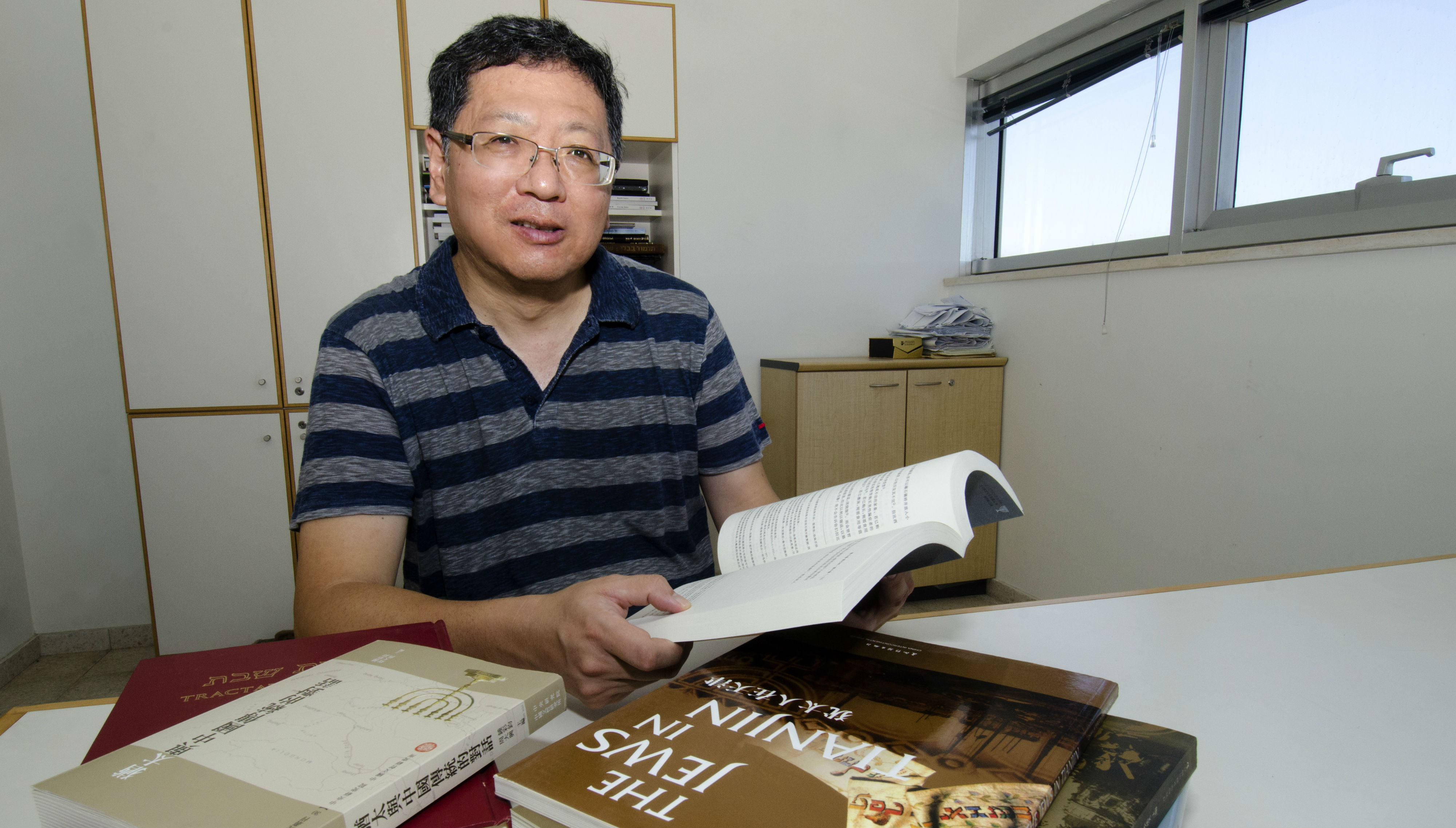Bringing Judaism to China: One Man's Journey
Walking into a chic bookstore in his hometown of Beijing this year, Prof. Zhang Ping, of TAU's Department of East Asian Studies, came across an entire wall devoted to the secrets of Jewish business success and wealth.“These books were neither academic in nature nor grounded in reality,” notes Zhang, “but they were selling fast. Chinese believe they can learn a lot from the Jewish people, who they respect for having a tradition as old as theirs. When you tell a Chinese man that you are Jewish, he typically responds, ‘So you are very smart’ or ‘So you are very similar to us.’”
Helping his countrymen move beyond Jewish stereotypes – no matter how flattering – is Zhang’s goal in translating the Mishnah to Chinese. When he is done, it will be the first complete Rabbinic Judaism classic ever published in China.
The Role of Jewish Thought in China
The belief that Jewish traditions hold the secret to great wealth and success dates back to the late Qing dynasty. After the humiliating defeat at the hands of the British during the Opium Wars, Chinese intellectuals questioned their own cultural superiority. They began to look to the West for answers and found them within Judaism. Though their understanding was limited, Chinese saw Jews as a people who could both thrive in modern society while simultaneously maintaining their ancient customs and traditions.
This Chinese identity struggle persists in contemporary times, explains Zhang. With the death of Mao Zedong and the collapse of his strict communist ideology, once again Chinese citizens are reevaluating their national identity and seeking direction in their lives. According to Zhang, “The ideological vacuum left from Mao creates a rare opportunity for Judaism to build a constant and solid dialogue with Chinese tradition.” He believes “Judaism should not keep sitting on the fence. It could play an important role in shaping the future of China.”

Finding Commonalities Between Traditions
Up until now, Chinese conceptions of Judaism confused Old and New Testament stories. Zhang’s translation of the Mishnah derives directly from the Hebrew text and includes footnotes with traditional interpretations as well as cross-cultural comparisons. This is to help Chinese readers understand and relate to the text by providing context. He believes that “the success of Buddhism, Islam and Christianity in China shows that a foreign tradition can hardly take root in China unless its relation with Chinese tradition is found.”
Zhang’s Mishnah is being recast in classical Chinese, thereby giving it an ancient and authentic feel. Each major section will take three to five years to translate and will be accompanied by academic research. His translation of Seder Zeraim of the Mishnah has already been published by Shandong University Press in China. It is almost 500 pages long with over 3,500 footnotes.
Zhang is also taking active steps to popularize Judaism in China. He writes his own column in one of China’s most widely read business magazines and maintains a following on Weibo, China’s version of Twitter, where he discusses Judaism from a cultural rather than business perspective.
An Unconventional Path
When asked why he is drawn to Judaism, Zhang responds: “I feel that many Chinese today do not think creatively or analytically. Within Jewish society, on the other hand, you see an inherent drive to challenge core assumptions and think outside the box. Chinese society could benefit from that.”
His first exposure to Jewish culture and the Hebrew language occurred by chance. Needing to fulfill his second language requirement for his master’s in Asian literature at Beijing University, he decided to join China’s first Hebrew language program. Zhang entered a class of only eight students and started reading the works of Israeli Nobel Prize laureate S.Y. Agnon.
“I felt deeply connected to his writings and decided I needed to translate his stories into Chinese. I then resolved to come to Tel Aviv University for my doctoral studies and specialize in his work,” says Zhang.
Yet, his path took a different turn in Israel. At Tel Aviv University, he was asked to translate Pirkei Avot, a tractate of the Talmud, into Chinese. No Jewish classic other than the Bible had ever been translated into Chinese until this point. Zhang immediately related to the stories: “I saw so many similarities to Confucianism. I realized that I wanted to go in the direction of comparative philosophy.” Particularly drawn to the Mishnah, Zhang began his life’s work. It will take more than 20 years to complete.






